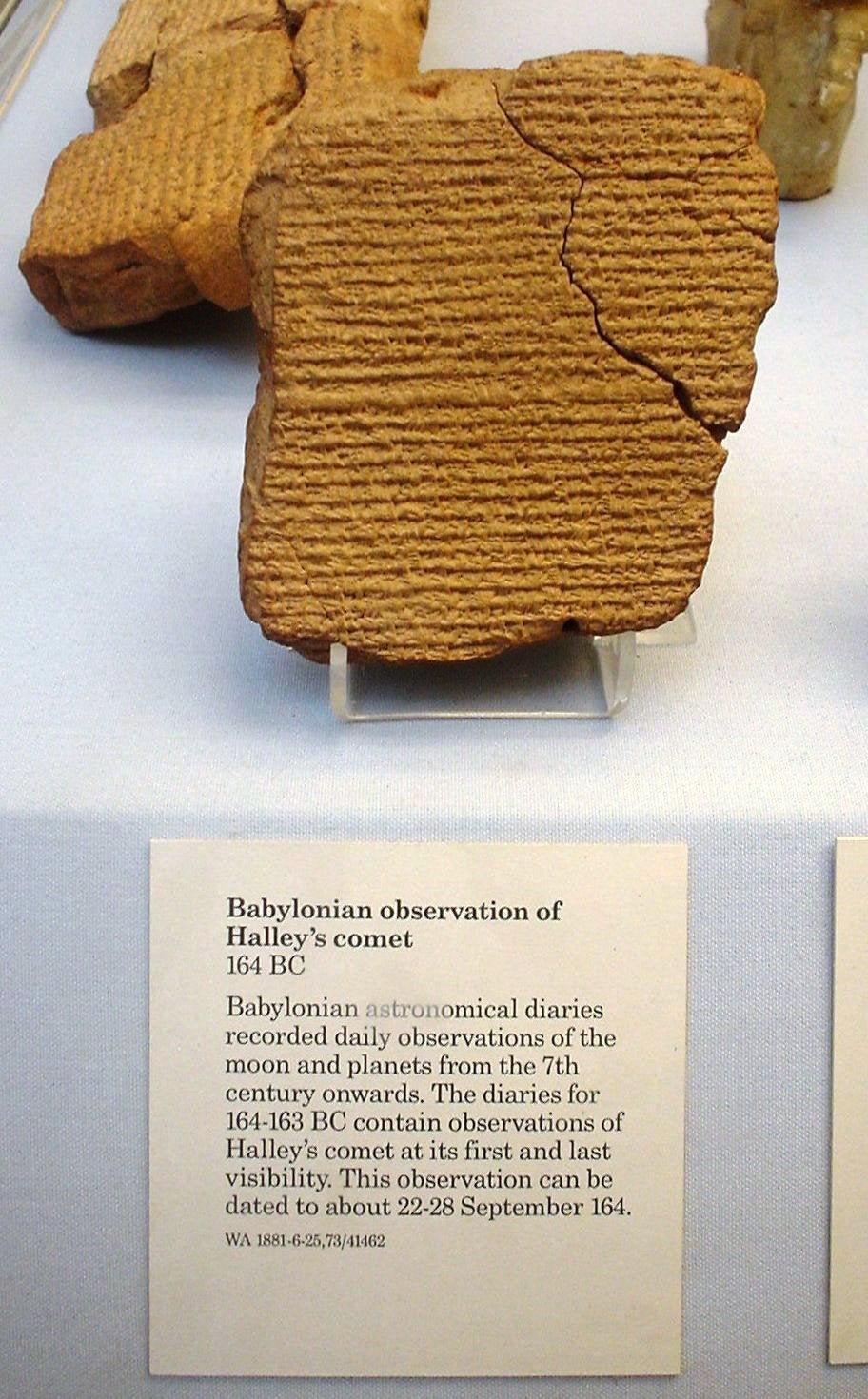
Those who are wise will shine like the brightness of the heavens, and those who lead many to righteousness, like the stars for ever and ever. – Daniel 12:3
Discovered in the library of the Assyrian king Aššurbanipal in Nineveh, the Astronomical Diaries are stone tablets that date from 650 to 60 BC that are now displayed in the British Museum. The Chaldeans of southern Babylonia (Iraq) were the scientists of the day and the tablets record what is likely the longest research program ever. The Chaldeans who authored these seventy tablets believed that the gods had created the movements of the planets to give the people on earth indications of the future. The interesting thing is that these predictions were not, like the horoscopes in our newspapers, invented by charlatans. On the contrary, the Chaldean astronomers used a purely scientific method. They observed the skies, collected data, discovered regularities, and warned the authorities when they knew something bad was about to happen. The Chaldean astronomers of Assyria and Babylonia are the originators of the scientific method used by astronomers and, in fact, every discipline of science today.
Keep In Touch